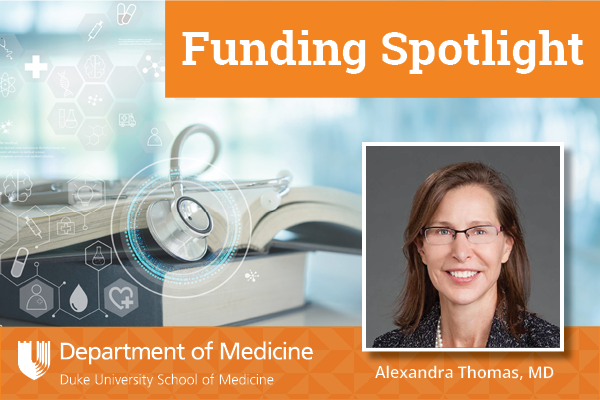
Alexandra Thomas, MD, FACP, professor of medicine and associate director of Translational Research at the Duke Cancer Institute, recently received a $3.1 million NIH grant to advance research into the effects of hormone-sensitive breast cancer therapies on heart health. The ongoing CROWN Study (Study of CaRdiac Outcomes With Near-complete estrogen deprivation) explores the impact of treatment toxicity on cardiovascular outcomes in young women with breast cancer, a patient population not typically monitored with extensive cardiovascular imaging.
The CROWN Study, now underway at Duke, aims to uncover critical insights into the natural history of heart health for premenopausal women undergoing estrogen deprivation therapy. By using advanced cardiovascular imaging, Dr. Thomas and her team have observed unexpected findings, providing a unique view of cardiac changes during treatment. “This award allows us to better understand who is at risk of heart injury from cancer therapies,” said Dr. Thomas, “and will help us intervene earlier to optimize both cancer and cardiovascular outcomes.”
The $3.1 million grant funds five years of research into these cardiac risks, giving Dr. Thomas and her team the resources to analyze data on cardiovascular changes in young breast cancer patients. This transfer of funds to Duke signifies an institutional commitment to Dr. Thomas' research and the CROWN study's objectives, ensuring the resources needed to monitor and improve patient care.
With an eye toward the future, Dr. Thomas is collaborating with the McDonnell laboratory at Duke to identify potential therapies with dual benefits: those that could both treat cancer and protect heart health. This innovative approach has the potential to enhance survivorship and long-term quality of life for women undergoing treatment for hormone-sensitive breast cancer. The study is managed by Project Manager in the Breast Oncology Research Unit, Sarah Hatcher, who has extensive knowledge of its intricacies and assists Dr. Thomas in maintaining the momentum of this groundbreaking research. Together, they aim to develop interventions that could significantly change outcomes for patients facing both cancer and cardiovascular risks.